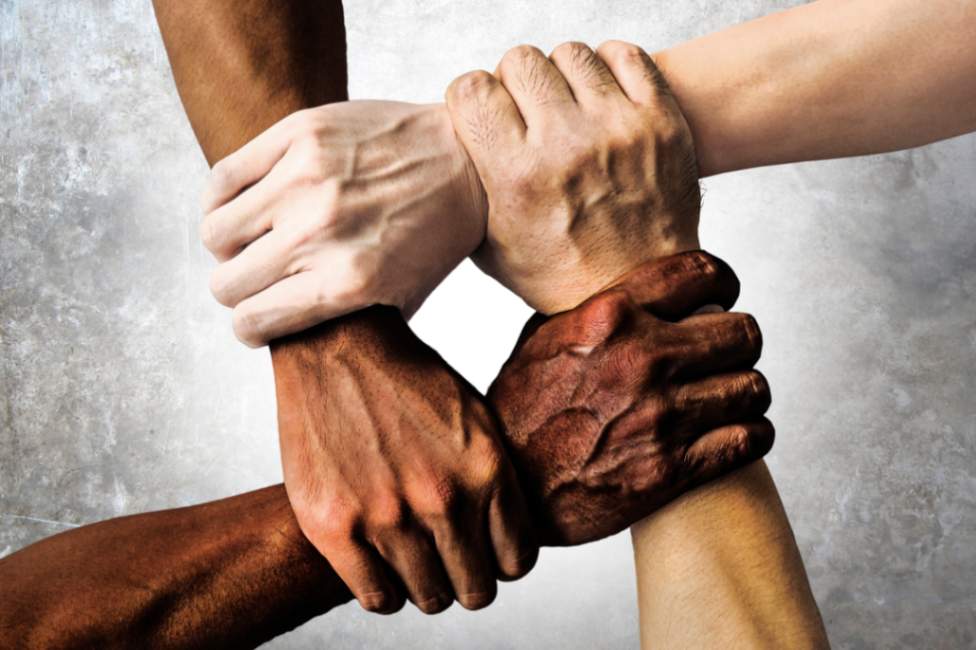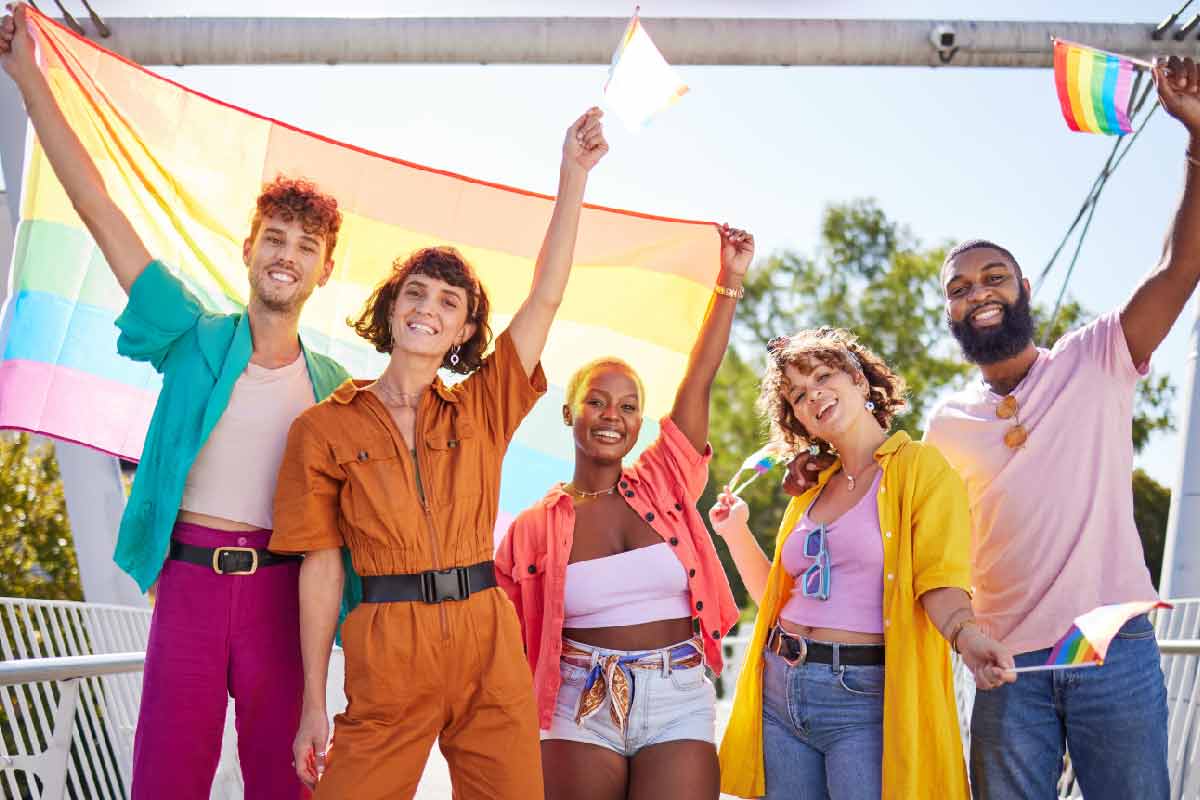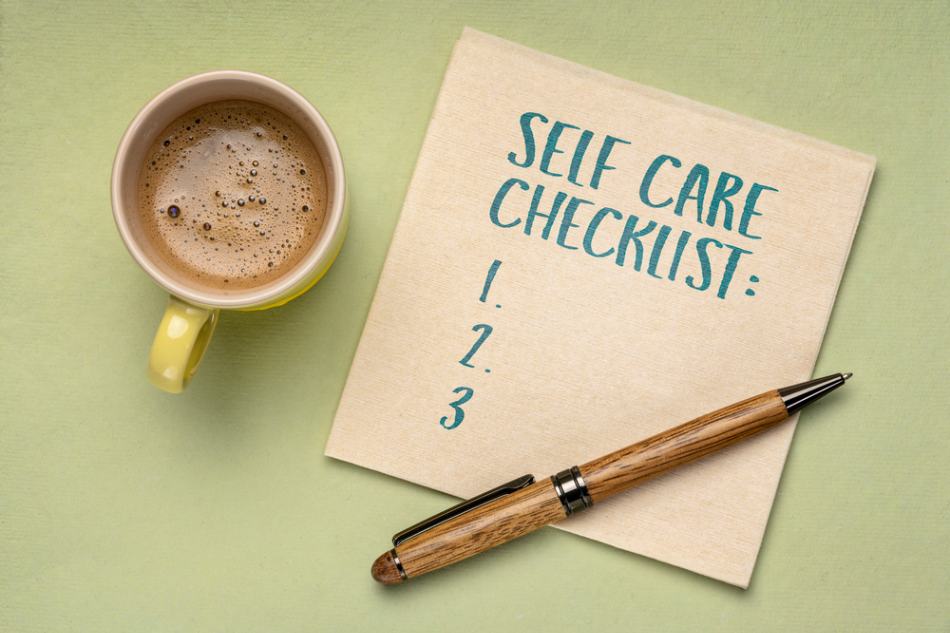June 8, 2023
Webinar: Coming Out as a Process
Written by Rachel Eddins
Posted in LGBTQ + Multicultural Concerns, Webinars and with tags: LGBTQ
Coming out is a process that starts long before a person announces their personal identity label to others. This process takes time for those sharing and receiving the announcement.
This webinar will go into this process in detail to help both those ready to come out and family and friends that might have recently had a loved one come out.
This webinar is presented by Ron DonLevy.
Watch a replay of the presentation here.
Learn more about our LGBTQ+ counseling services.
Here is a transcript of the webinar:
Welcome. I’m Ron Donlevy, and I will be talking about the coming out process. Obviously, coming out is a phrase that people use that happens to be a reference to “coming out of the closet” as if one was in hiding in the closet.
This webinar is part of our monthly focus on wellness series.
Coming Out: A Process, Not An Event
The process one goes through as they become aware of their own authentic expression and discuss this awareness openly with those that may or may not be aware. This could include a specific label or a request to avoid labels.
Coming out is an interaction or a series of interactions.
This is my own personal definition. The important thing to remember is that coming out is an interaction or a series of interactions. But the idea behind it (being an interaction) is that it’s not a static event, and it usually, obviously, is communication between people.
There’s some relationship present. The goal is to know what a relationship is and to know what your hopes are and if your expectations are realistic or not. Is this a process or is it a one-time deal (which for the most part it’s not)?
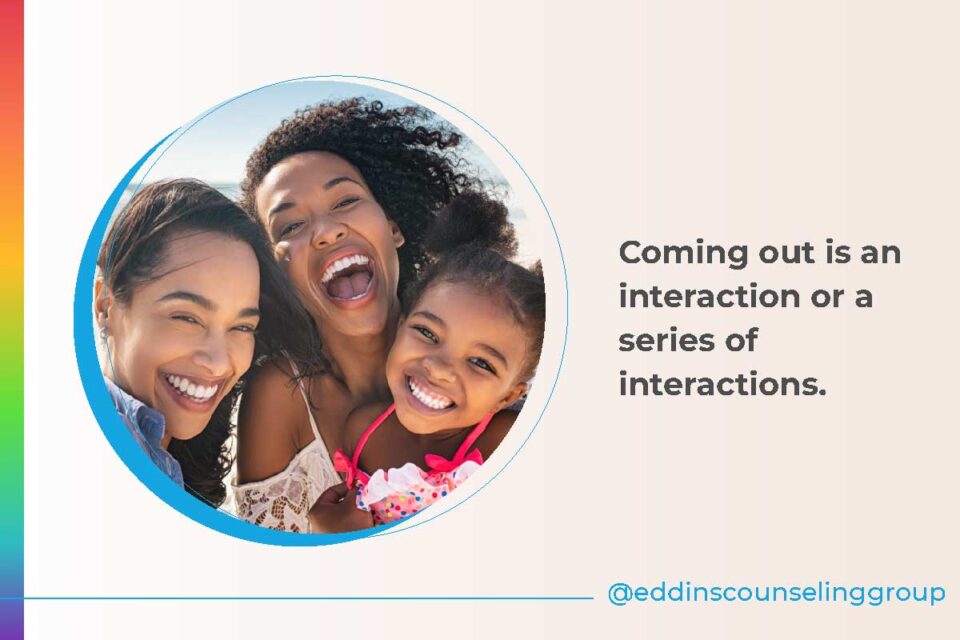
What?
Or perhaps how or as
- Sexual orientation
- Gender Identity
- As an Ally
Certainly, what it is just or perhaps how or as.
When people come out, they come out with their own authenticity with regard to their sexual orientation or possibly their gender identity or as an ally. But what that really means is it could be whether they consider themselves pansexual, bisexual, lesbian, or homosexual.
There’s a bunch of terms and it seems like the alphabet is growing LGBTQIA+. In some ways, it is because people want to have words for their own self–expression and want to label their own identity.
Sometimes they don’t want any labels whatsoever and are sensitive about that with regard to both sexual orientations, like the controversy over being pansexual or bisexual.
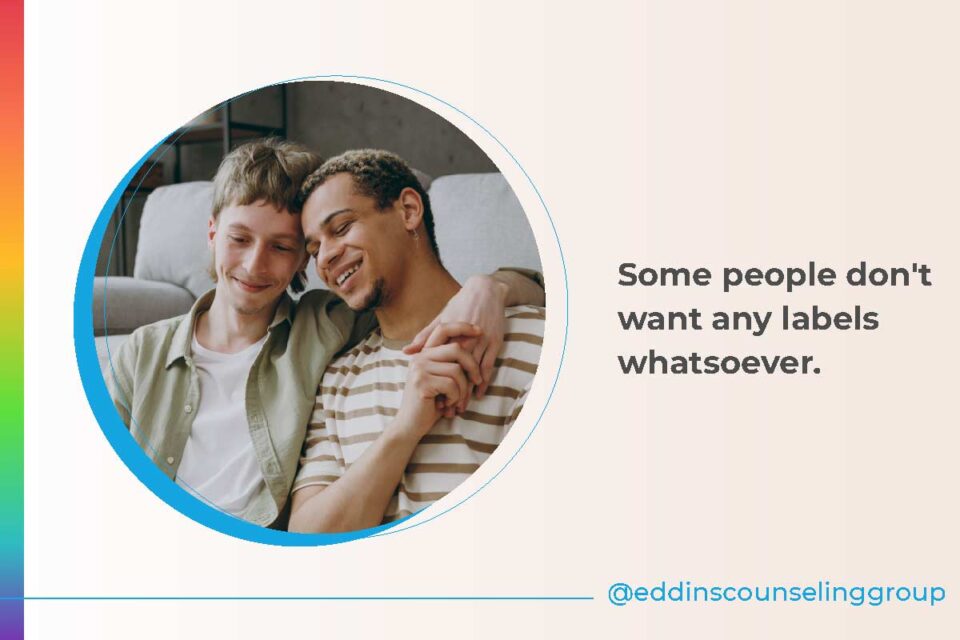
There can even be a stigma within the lesbian or homosexual community with regard to some of those terms. Being aware of that and knowing what those different things are can be very important.
Do you identify as a cisgender male, for example, which would be presenting as the gender that you biologically received at birth? That’s not always clear at birth because there are intersex people as well.
Then we have people who are gender nonbinary. Whether they express themselves as more masculine or more feminine, it’s really a spectrum.
That’s not something that I specialize in personally or have a lot of experience with.
Using pronouns and being willing to accept other people’s pronouns is a way that we can be an ally.
How can – or as – you come out as an ally? Sure!
When somebody comes out with their sexual orientation or as an ally or with their gender identity, it’s not set in stone.
People’s authenticity is not a static thing. It’s part of who they are, and we all change and grow through our lives.
Those are things we need to be aware of as well.
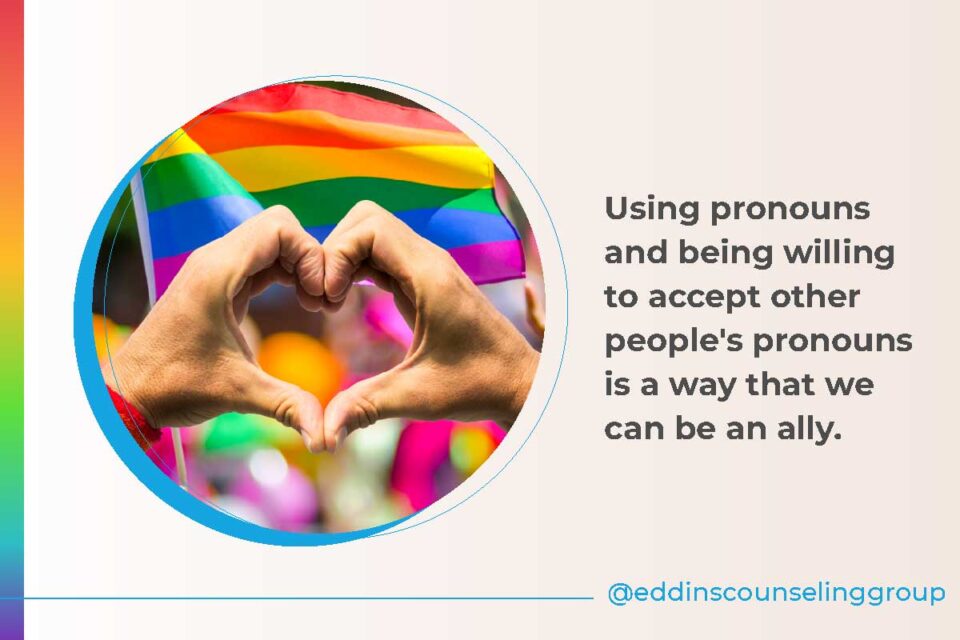
Who or Where?
Or to Whom?
- Yourself
- In safe spaces
- Friends
- Co-workers
- Family
- Extended family
Obviously, one of the first things that happens is someone comes out to themselves. Sometimes it’s very clear and there are no questions.
Even if it’s something you’re aware of from a very young age, as you grow older, you learn to understand what other people’s expectations are and where your personal identity fits in with the rest of the world.
Then we talk about things like self-hatred or internalized homophobia and those kinds of situations. But coming out to yourself or understanding your own identity is a first step.
Then having the cognitive awareness to be able to discuss it and know about It.
Because everybody’s different. It’s very unique.
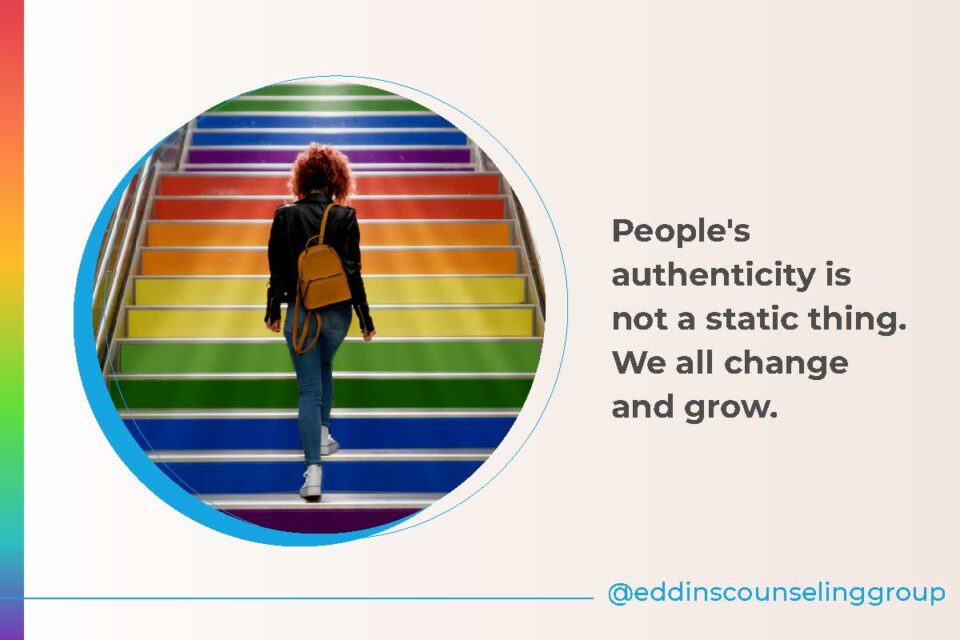
Coming out as far as having a discussion with somebody or presenting yourself in a certain way or giving yourself a label, you might want to do that in a more anonymous way, in safe spaces first after you’ve come out to yourself.
For example, maybe in a coming out support group or with your counselor, although that’s not anonymous, or just being out in a social environment, a lesbian bar, a gay bar, something like that. There are other safe spaces, certainly.
Believe it or not, one of my first safe spaces was probably a gay AA meeting. You never know where you’re going to find your allies.
Your closer friends might have some idea of you coming out or of an effect that you might do at some point.
Co-workers, sometimes that’s a professional choice. Is that something you want to do or not?
Either choice is acceptable. It’s your identity and your authenticity.
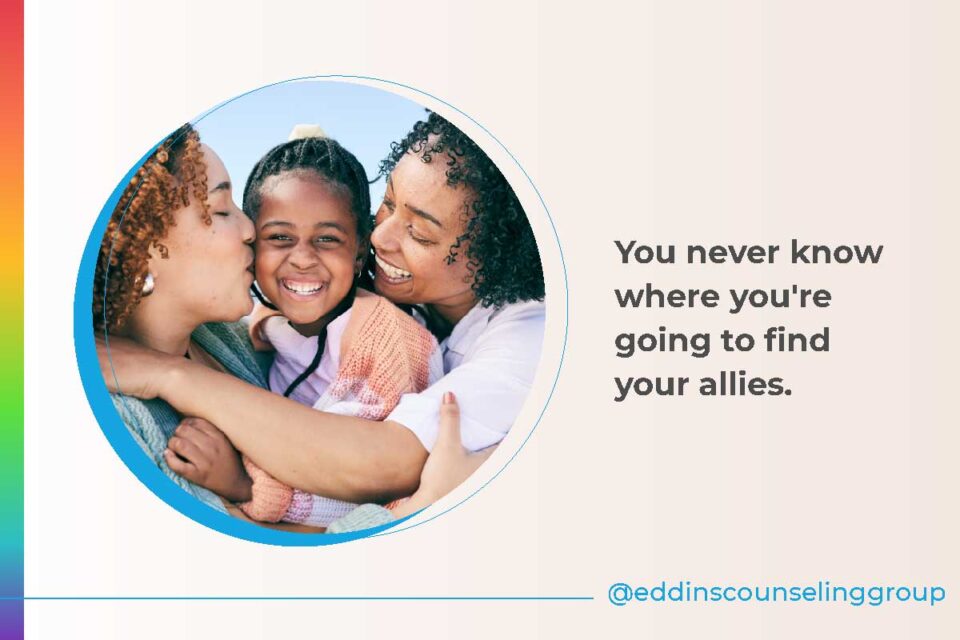
Your family is one of the big ones that we’ll talk about. When people think of coming out, they think of that big conversation that they have with their family, and that can be daunting.
Then extended family. Do they need to know? Do they not need to know?
- Grandparents?
- Aunts and uncles?
If these aren’t people that you would let know you’re having a surgical procedure that might be a little dangerous because they’re not that close to you, then maybe you might not want to share something about your authentic identity as something as personal as how you love or how you want to express yourself.
Those are choices and there are no wrong or right answers. In this space, there’s coming out, there’s a lot of decisions to be made, and they’re your decisions.
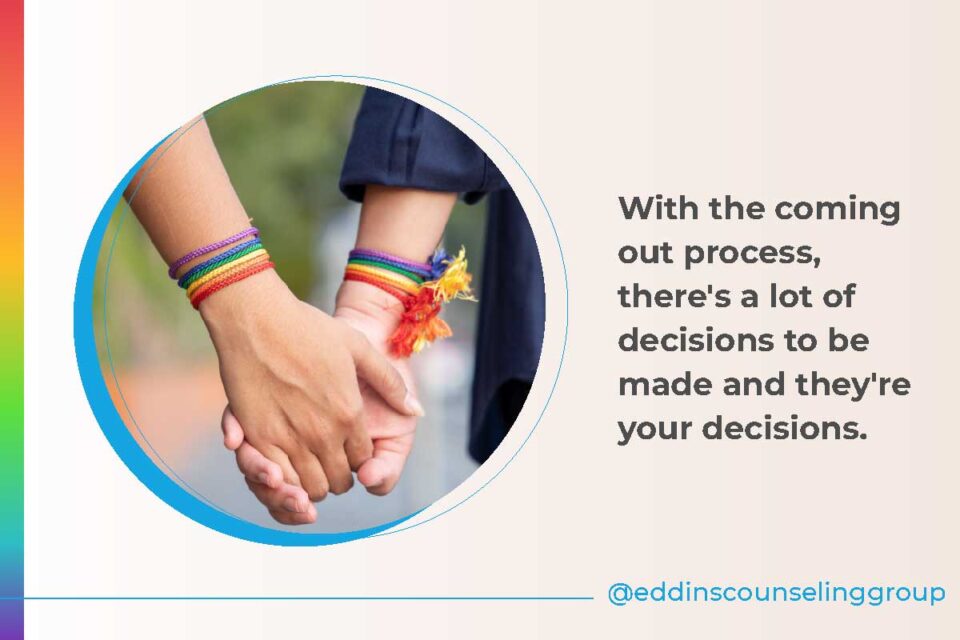
We will talk about the perspective of coming out from the other side.
Part of the reason I have a passion for LGBTQI+ issues and especially around coming out is that I have a lot of experience with it. I came out toward the end of my first college year.
It created a lot of cognitive dissonance and a lot of challenges for me, including some alcoholism as one of my coping mechanisms.
I came out, I was out for two years. All my family knew, and everybody knew.
Then I met a woman, there was definitely chemistry, she was awesome, we fell in love and I decided to jump back in the proverbial closet for 27 years and was married.
Then I came out again.
In the interim, once my oldest daughter became a certain age, she came out to us as pansexual. She basically loves who she loves and their gender isn’t really an issue.
She is, for all intents and purposes, in a lesbian relationship. I have a beautiful and amazing young grandson. He’s almost seven months old. And so that’s really exciting.
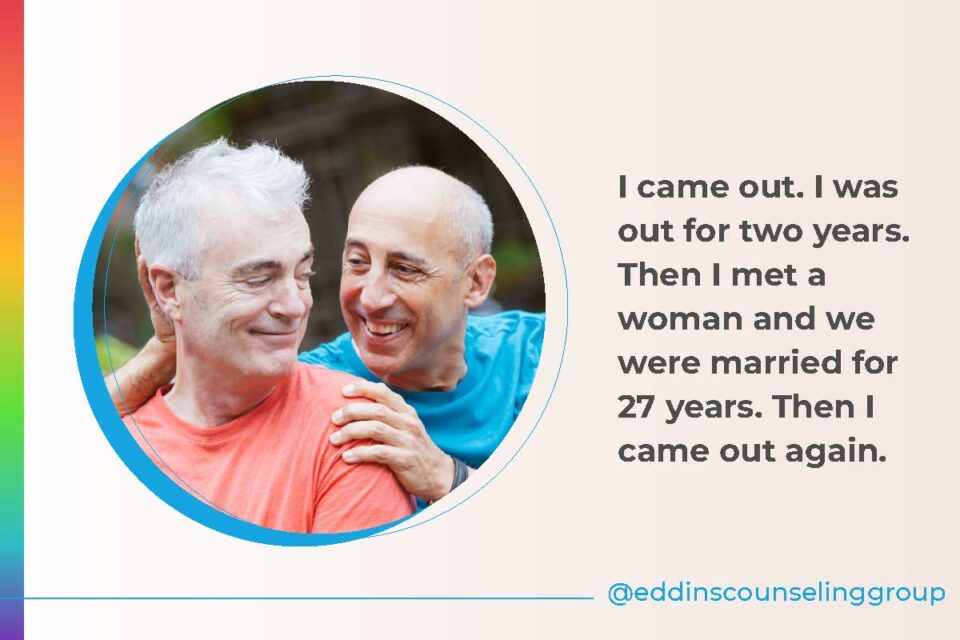
I do have that perspective from when she came out to us. It wasn’t really very direct. It was: “No, I won’t be bringing a boy home for Christmas dinner. It might be a woman.” And so that’s how that happened. It was very shocking.
Knowing what that’s like from the side of a parent is another unique perspective.
The reality is when someone does come out, and when we look at the who or where, they’ve already come out to themselves and they may have practiced coming out in those anonymous safe spaces (whether it’s a bar or a meeting or a support group or heir closest friends or other friends who are gay who they feel safe with).
That happens for them first, and it’s a process there.
By the time they are ready to really undertake opening up to some of those closer family members, they may have built up some expectations.
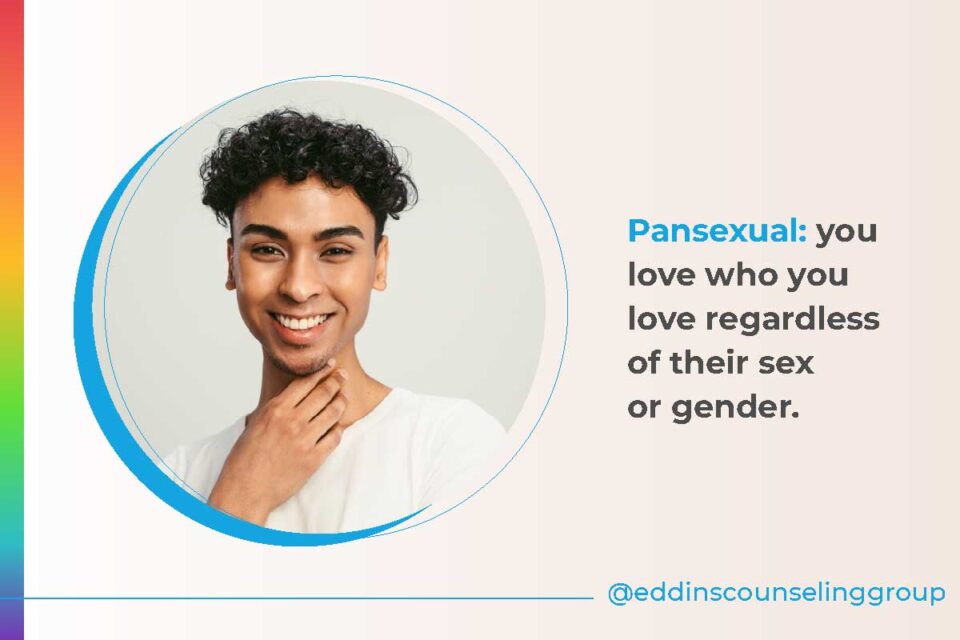
When?
A decision we make
- When ready
- One day
- Every day
- Never
- Without deciding
- Ongoing
Here is when we make this decision we make. And we make the decision to come out when we’re ready.
One day we may decide it’s the day to do it. We also make little decisions to come out every day.
Are we going to come out to the clerk at Kroger?
Are we going to wear a Pride shirt and respond in a very open way?
Or are we going to bring something up and talk about how frustrating it is that Target isn’t carrying Pride merchandise in the regular store anymore?
In many of those conversations, whether we’re an ally or a member of the LGBTQIA+ community, it’s still a decision. Are we going to talk about that with each other because we choose to with a friend, with a co-worker, with a stranger?
Occasionally it’s without deciding. One of my bigger coming out experiences was like that myself. I was outed by someone else and it caused a fair amount of stress.
It was very awkward and upsetting because it wasn’t something I felt ready for. I had been experimenting with my more anonymous safe spaces.
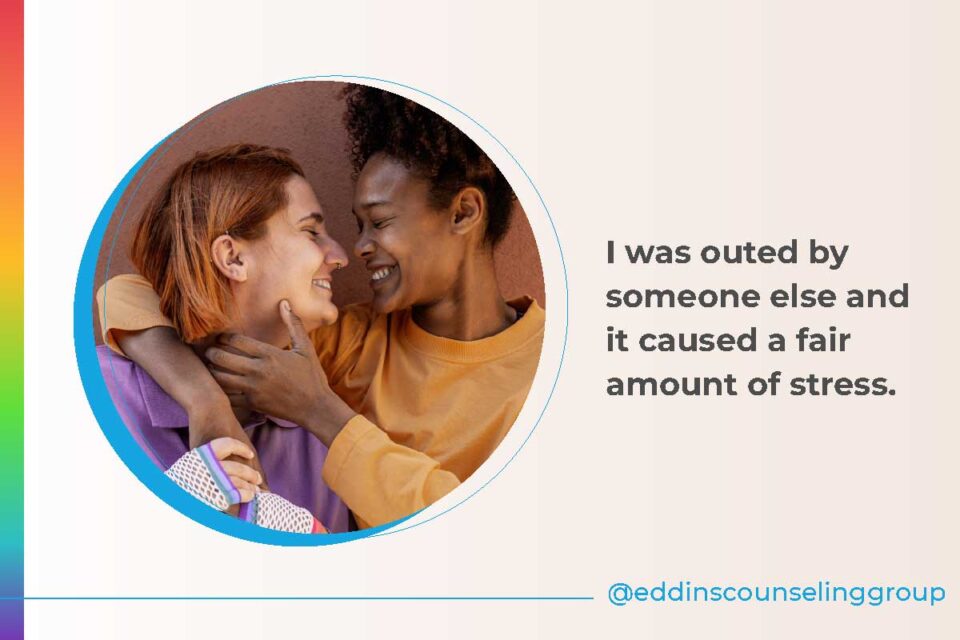
It’s also ongoing.
One of the things sometimes we don’t consider is that we may make those decisions over and over;
- coming out when we’re in a new environment,
- coming out when we’re in a different space,
- whether it’s in public or private.
We meet new people all the time. Being straightforward, out and proud, and authentic is one choice. But it’s not the only choice.
Many people feel that the people they love and their sexual orientation are not for public consumption.
That’s a private thing and it doesn’t need to be everybody’s business. And others feel like: “Hey, we need to step up and be counted”.
And I think both those things are very valid depending on who you are, where you are when you are, and what your own decisions are.
Those are all options as well.
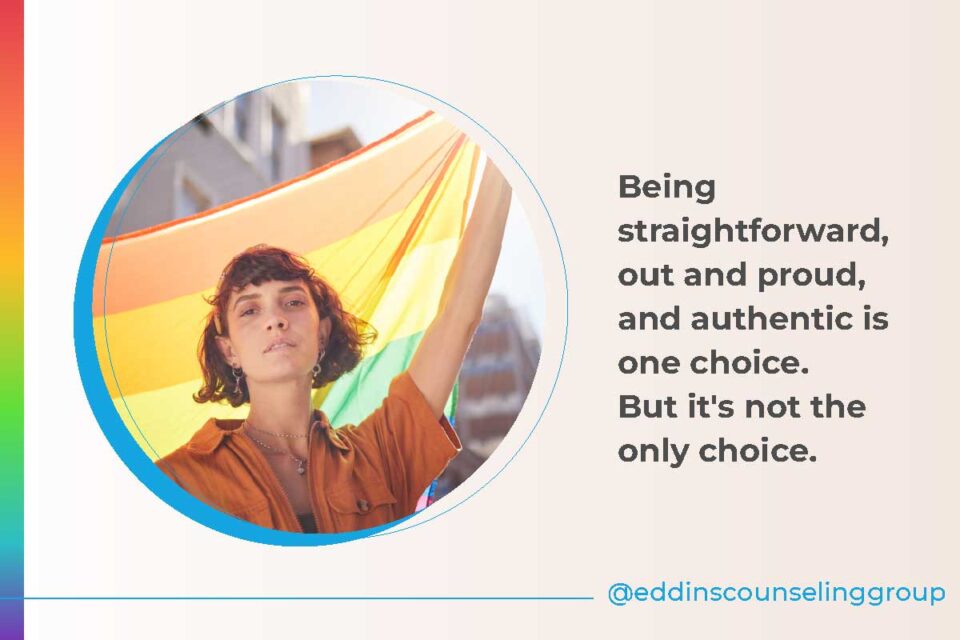
Coming Out Interactions
Some things to consider:
Audience
- Relationship?
- Need or want?
- Motivation?
Expectations
- What are they?
- Realistic?
- Resentment fuel?
Grace
- For you?
- From you?
- Among you?
Consider the relationship: Is it a co-worker? Is it someone you meet and you’re not going to spend any time with them in the future?
What’s your motivation for wanting to step up and be your authentic self in that situation?
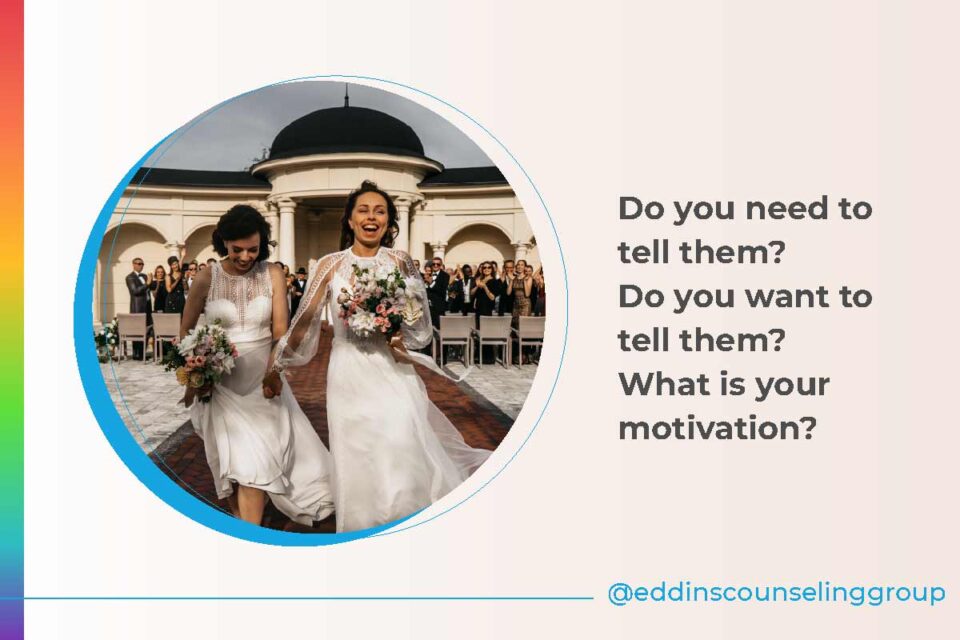
Do you feel like having a conversation about Target? It’s not really necessary, but it’s not a person that you’re going to spend a lot of time with, so it’s casual.
Or is it something more serious?
- Someone you’re interested in, you want to date, you don’t know about them.
- A family member who you know has a particularly conservative viewpoint?
- Or a person/family member who had a particularly religious upbringing and that they’re probably not going to be very open and accepting?
All those things are possible.
Do you need to tell them? Do you want to tell them? What is your motivation?
A big thing that I think we sometimes don’t consider is “what are our expectations”. What do we expect?
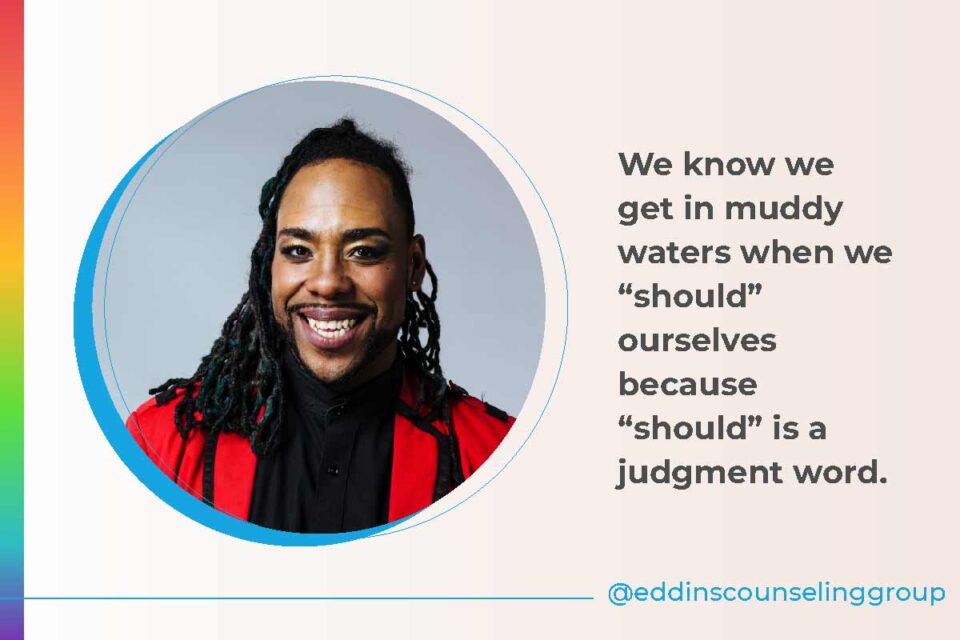
Is it necessary that every mother and every father has to love their kids because that’s the way it should be?
We know we get in muddy waters when we “should” ourselves because “should” is a judgment word.
In a perfect world, all parents would be loving and accepting with no boundaries. The reality is that over time, we create pictures of the future of our children in our mind or our favorite cousins or our best friend.
We get used to them in the way that we experience them and the way that we have learned to expect them to be or the way we expected them to be in the future.
When we come out to them, are we being realistic about what their reaction might be?
And have we considered that they might just need some time and space? After all, coming out was a process for us.
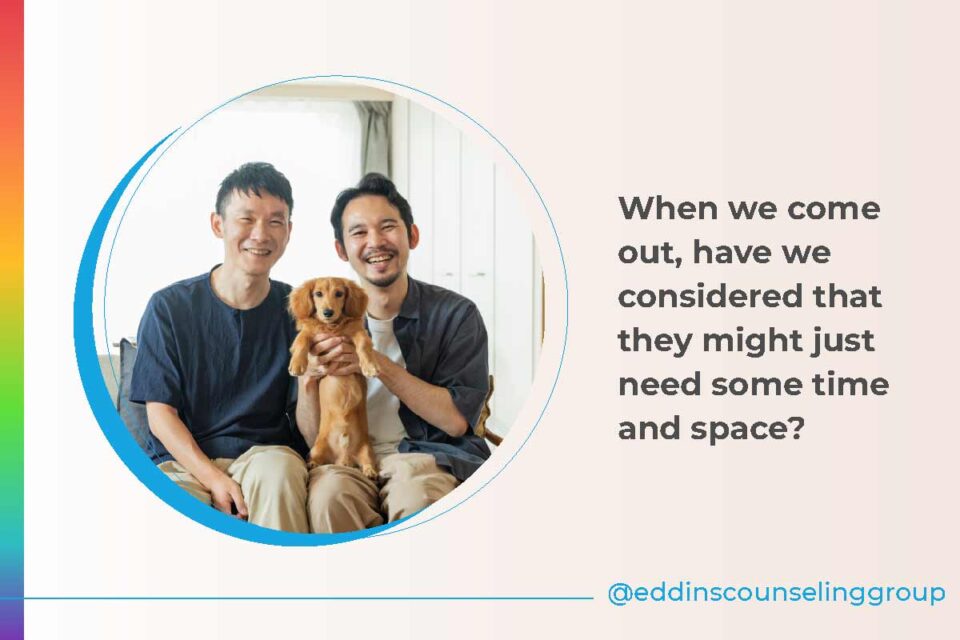
Some of us understood who we were very early on and were very direct about it, and many others weren’t. And so if it takes some time to get used to for us and we’re living in our own body and our own mind, then it might take a little while, a little adjustment for someone else.
If our expectation as the person coming out is that a mother or a father or a sister or a brother is that if they truly love you, they will accept you no matter what. I believe that that is probably true.
In point of fact, chances are that they will come around to that even if they’re struggling initially. That can’t always be the case, I’m sure. But I think more often than not, it is.
Sometimes it’s hard to gauge what the initial reactions are going to be.
But very often after a little bit of time, people come around and they’re able to re-express without that initial reaction, something hopefully more genuine and more kind and more caring.
I’m sure some people will come off that way from the get-go. That certainly is very possible.
I think the big thing is to not have such strong expectations that you set yourself up to be resentful of their reaction. Then we all need a little grace.
You might need a little grace as the person coming out. You might need a little grace as the person that someone’s coming out, too.
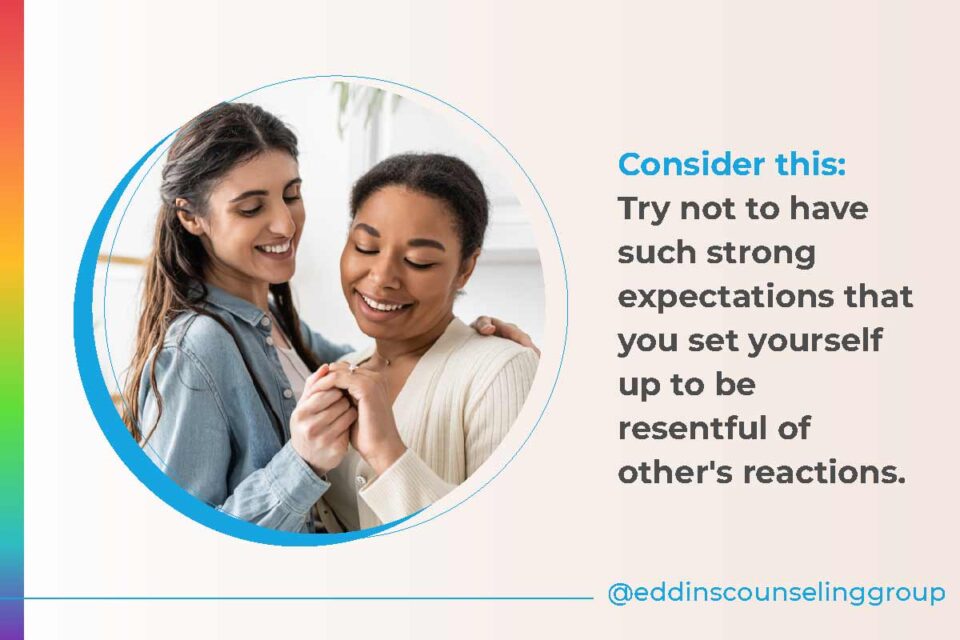
You got to remember that, especially for the family ones, the best friends, the siblings, the moms, and the dads. These are relationships that really everybody involved wants to maintain.
Being sensitive to that process and the grace that is needed on both sides is like the way we talk about relationships in couples therapy or Brené Brown videos where being vulnerable in our relationships shows that we are trusting of the other person and that the other person can be trusting of us.
Vulnerability is really courage and bravery and that’s exactly what the coming out experience with regard to those relationships is.
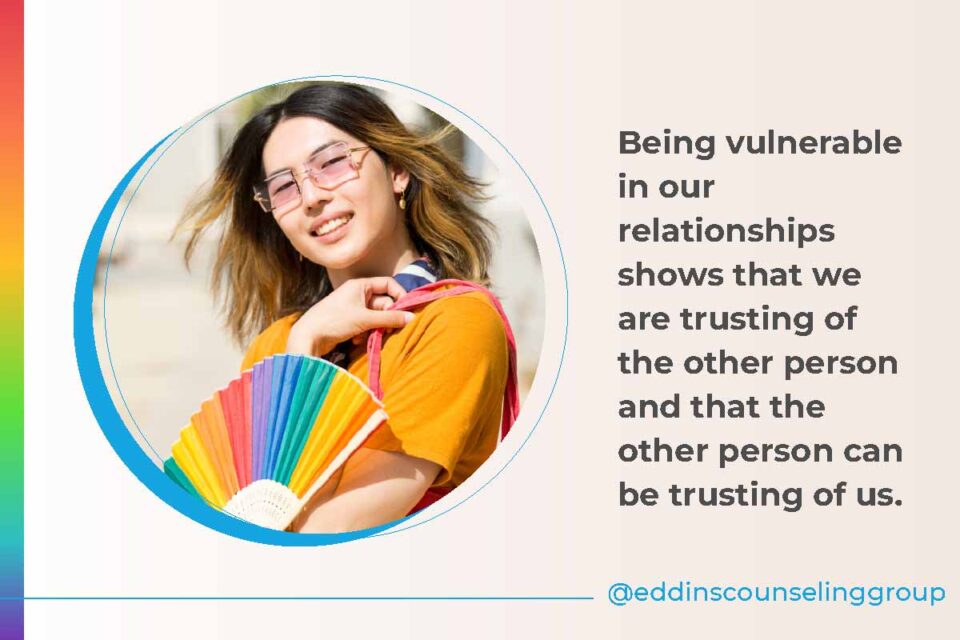
Here are some great resources on coming out:
- I think the resources that I like the best are the Trevor Project resources.
- PFLAG has its own resources, including a list of coming out books. PFLAG is Parents and Friends of Lesbian and Gay People, and they’ve been around for a long time and have lots of good resources there.
There are some simple definitions, the etymology of the phrase “coming out” and “coming out of the closet”. All those history and the colloquialisms and some of the history of gay rights in the United States and those kinds of things.
I also have a reading list from a friend of mine. I participated in a coming out support group at the Montrose Center for a while. Margaret is a friend who is also a counselor, and she volunteered at the Montrose Center and would facilitate the group when there wasn’t an intern on deck to do it on a particular week.
She has a lesbian adopted daughter that we heard about quite a bit. She goes to a very open and affirming church. She has a big reading list of resources. Many of them are open and affirming Christian friendly.
There’s also another link from “Love, Simon”. I think it was one of the big advertising trailers, but it shows somebody saying in the movie: “It’s not fair, straight people don’t have to come out”.
And then they show people coming out as straight to their parents. It’s really funny because they show a woman screaming because her daughter just said she likes men. So it’s just a funny twist on that, the whole coming out process.
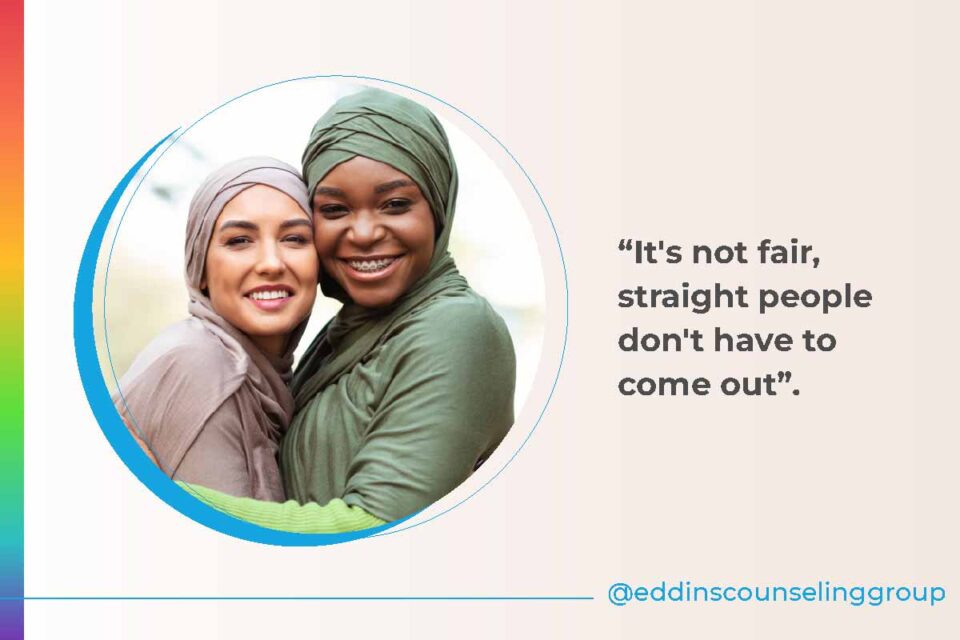
Coming Out Isn’t Really a One-Time Thing
One of those resources that I really liked, had a really awesome definition, and I think the most amazing thing is that “coming out isn’t really a one-time thing”.
Coming out in order to live openly isn’t something you do once or even for a year. It’s a decision that we make every single day of our lives. Every coming out experience is unique and must be navigated in the way most comfortable for the individual. Whether it’s for the first time ever or for the first time today, coming out can be an arduous journey. It’s also a brave decision to live authentically. -Human Rights Campaign, HRC.
The great thing about that particular resource is that there’s information about how people use pronouns and different definitions of sexual orientation and representations of the different pride flags for the different segments of the LGBTQIA+ community.
I know that there are a couple of resources on that resource list as well that talk about ways to find supportive organizations, whether they’re faith-based organizations or otherwise. There’s an open and affirming church search. You can search for churches that don’t just allow gay people in the doors, but who actually welcome them. That can be a game changer for some people who are dealing with more internalized issues.
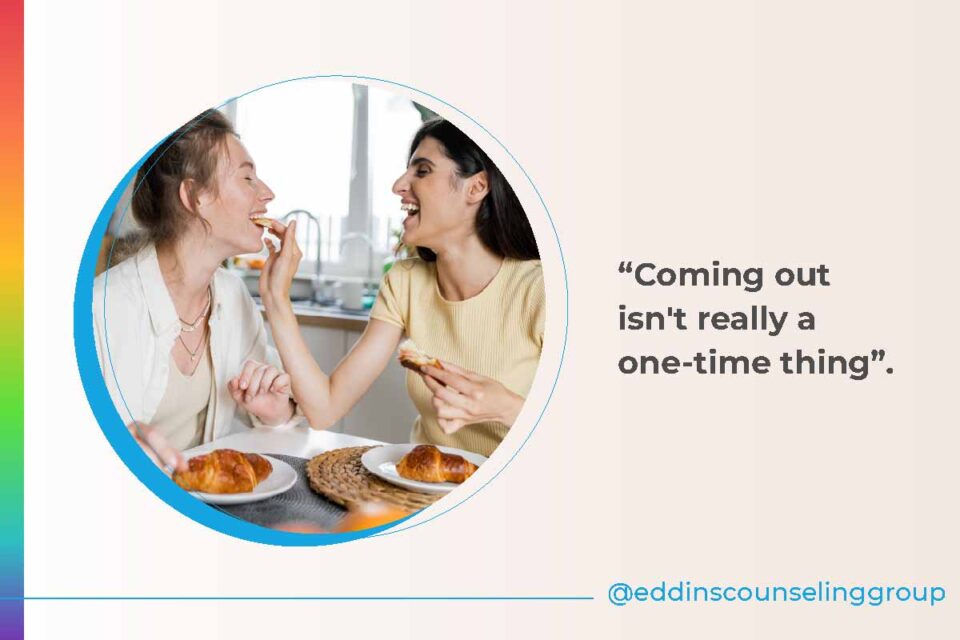
How does coming out look to whom?
One of the other things that I covered is “How does coming out look to whom?”
I talked about the stages of coming out. It’s an older concept. It used to be standard.
- First, you have to explore your own thoughts and feelings, and
- Then you come to a point where you understand yourself, and
- Then you come out to yourself, and
- Then start to come out to others.
All of those events probably do happen in a coming out journey, but they don’t happen in a very linear way. Those things have turned out to not be so much as stages (like the stages of grief that follow one after the other).
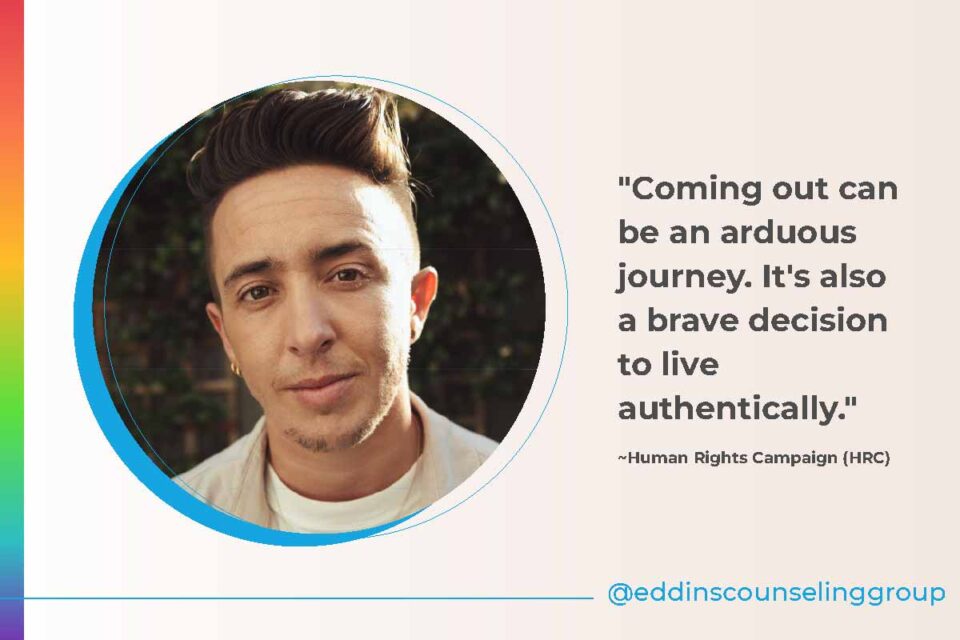
Do we ask someone about their pronouns or orientation?
Unless there’s a standard in a work environment or the environment you’re in that everybody will be asked, I would say probably not necessarily.
If they have mentioned their pronouns before or they have talked about coming out or being more authentic in their identity and you just don’t want to say something incorrect.
The safest thing is to either assume and use “they” until they correct you, or you could ask if the conversation has already been brought about in a general way.
I don’t think I would really ask anybody about their sexual orientation unless I personally wanted to date them or perhaps wanted to introduce them to someone for some reason.
I think there are many ways to have conversations with people where you’re talking in an open and affirming way about sexual orientation issues or gender identity issues.
If you’re in that conversation already, a lot of those more individual details will come out. I think it usually is upon the person who prefers a certain pronoun to share that with you.
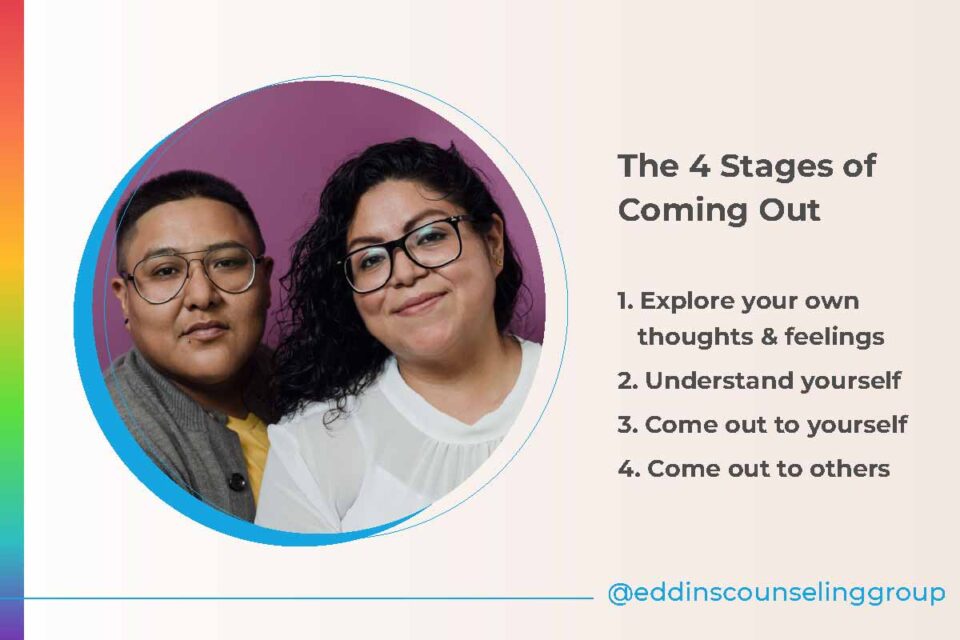
People don’t like to be caught on the questioning end as much but you’ll get a sense from someone who’s very out and proud or living out authentically that they’re happy for you to ask a question.
But I think most of the time that’s pretty obvious by the way they’re speaking.
There are a lot of great resources and a lot of books about the coming out process for different people who’ve done that over the years.
Some of those resources are specific resources for people who are coming out that may want to see how that process was accomplished by others. Some of those reading lists will include some of that information as well.
The Trevor Project is hands down my very favorite website. It’s got tons and tons of great information. Of course, it’s set up as an LGBTQIA+ friendly suicide website specifically for that population and targeting teenagers, which is Trevor Project’s mission.
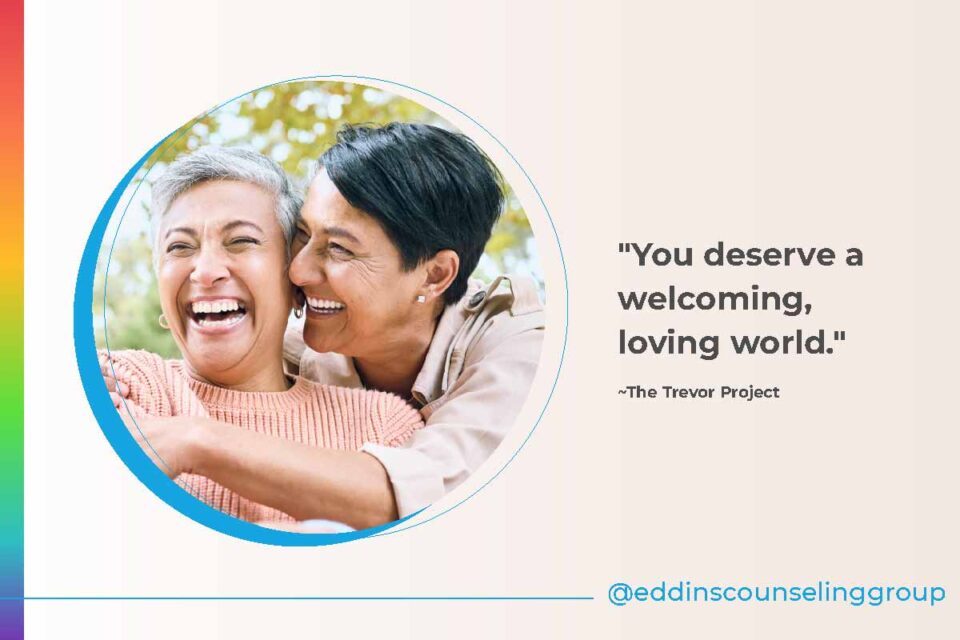
There is a plethora of additional information on their website that can help in all aspects of families understanding their teens and teens understanding themselves.
And sometimes the research could just lead them to the fact that they are not queer or questioning at all.
I’m cisgender and that’s what I am. But it’s very open as well about that.
If you need more information, you can certainly call (832) 559-2622 or text (832) 699-5001.
I just wanted to say thanks so much for joining us and Happy Pride. I thought that was really fun since this was a coming out thing. I really appreciate you being here and I hope you have a fantastic summer.
Thank you very much, everyone, and I hope you have a great weekend.
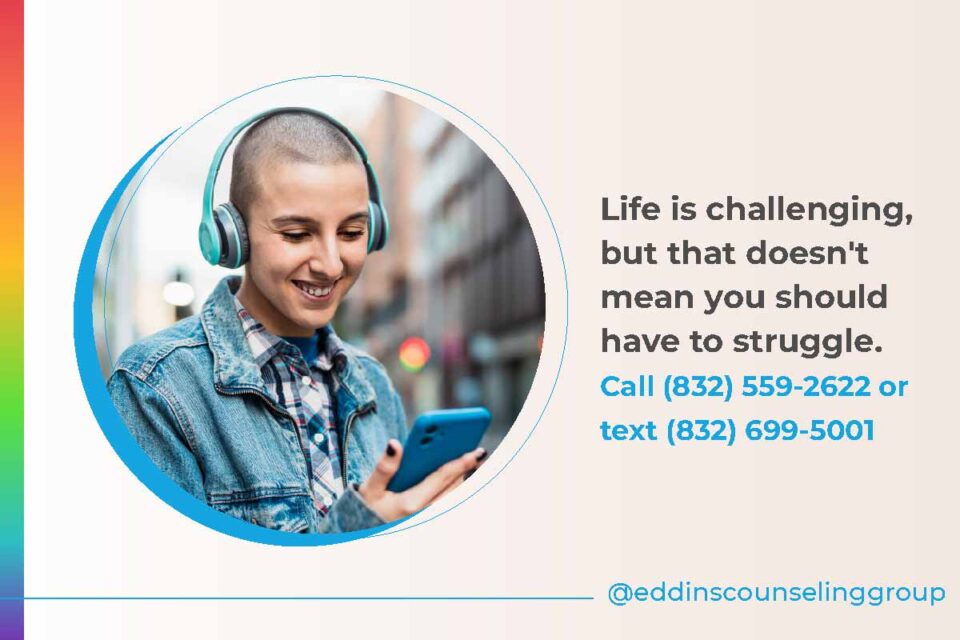
With the right therapist working by your side, anything is possible.
Ready to get started? If you are looking for professional mental health support, consider the following from our team of Houston, Montrose, and Sugar Land therapists.
LGBTQIA+ Counseling
Find empowerment and support with LGBTQ+ affirmative therapy for individuals, couples, and families.
LGBTQ+ Couples Therapy
LGBTQ+ affirming couples therapy can help your relationship build healthy intimacy, communication, and connection and overcome ruptures.
Previous Focus on Wellness Webinars:
7 Mood-Boosting Tips
Get instant access to your free ebook.

